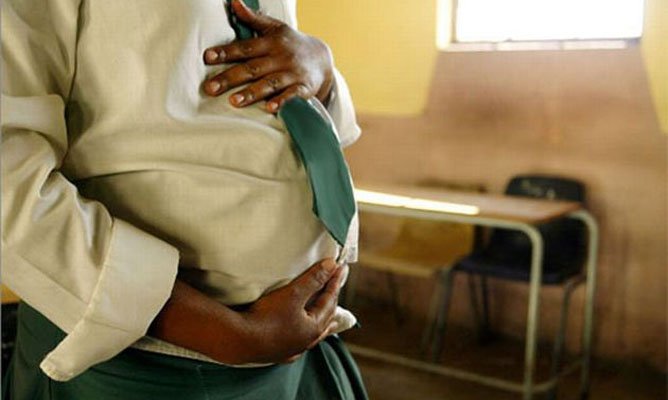By Nyasha B Dube and Priscilla Makondo, Zvishavane
Parents, teenagers and other stakeholders have expressed mixed feelings over the proposed distribution of contraceptives to young girls, especially in schools, as a way of curbing early pregnancies.
Teenage pregnancies drastically increased during the Covid-19 induced lockdown which came into effect last year, and resulted in most school going girls being forced to drop out of school.
Latest statistics for the period January and February 2021 indicate that about 4 959 teenagers fell pregnant in those two months, and about 1 774 entered into matrimonial union.
This comes as a double tragedy as these girls not only lost their right to education, but also became subjected to worsened poverty, forced marriages, Gender Based Violence among others.
It is against this dilemma that organisations like Zimbabwe National Family Planning Council have been calling for the distribution of contraceptives and alternatives like legalising abortion so as to reduce the cases of early pregnancies and school dropouts.
Parents who spoke to CITE said although this is not a familiar move, it is necessary because teenagers are indulging in sexual activities at early age.
“This issue has a good and bad side to it. Options like abortion are not common in our culture but we cannot ignore the fact that our children are sexually active,” said one Tendai Sibanda.
“Teenagers must be responsible, and if it means being given contraceptives then it’s okay as long as it prevents unwanted pregnancies. Yes early indulgence is bad but we need preventive measures because these things are happening,” added another parent Martin Hove.
Some teenagers who also shared their sentiments said they welcome the move if it ever reaches implementation stage.
“If contraceptives are distributed in schools, this will help prevent early pregnancies because either way, our peers are having sex with or without contraception so it’s better to prevent. Teen pregnancies are leading to unsafe abortions, the high number of school dropouts, Post Natal Depression, suicide among others so it’s better to find solutions to those problems,” they said.
The issue of teenage pregnancies and early marriages has always been a challenge in Zimbabwe, but increased during the pandemic and lockdown because most children were idle. In mining areas like Zvishavane and Mberengwa, young girls indulged in sexual relations with artisanal miners because of poverty and trying to make ends meet, at the same time risking falling pregnant and contracting Sexual Transmitted Infections.
Some were forced into marriages because of cultural and religious practices, and had no form of protection because of many barriers that came with the lockdown. As a result most could not continue with school.
Amalgamated Rural Teachers Union President Obert Masarure says there’s need to address the structural challenges which push young girls to engage in sexual behaviors.
“Giving teenagers contraceptives won’t be enough. We have to look deep into what is really resulting in such behaviors. Factors like poverty come into play. We need consultations with parents and other stakeholders as to how we can protect the girl child and keep her in school,” said Masarure.
He added that teenagers are also exposed to a lot of information because of social media hence the need to strike a balance on the kind of information at their disposal.
Some have been calling for the review of the Pregnancy Termination Act to include teenagers below 18. According to the act, those who get pregnant through rape or incest can abort, and also when the pregnancy puts the life of the woman in danger.
Traditional leaders however say issuing contraceptives or allowing teenagers to abort goes against cultural norms.
“Our culture goes against the idea of issuing contraceptives to young girls because this is more like allowing them to have sex. I would encourage young girls to abstain and focus on building their future. Contraceptives are not a solution but could create more problems,” said Chief Masunda from Zvishavane.
Chief Mapanzure echoed the same sentiments as he said teenagers need more of counseling rather than being given contraceptives.
“It is the role of parents, aunties and uncles to talk to their children and educate them on the implications of early indulgence into sexual activities. Contraceptives can come in as a secondary solution but first these children need to be taught good behaviors. There’s a lot of cultural erosion going on and we are killing the aspect of Ubuntu/Unhu. Let’s go back to our cultural roots and teach young girls how to conduct themselves. Rights should come with responsibilities,” he said.
Civil Society Organisations say it’s high time government and other stakeholders take a solution oriented approach to curb teen pregnancies.
“The latest statistics show that there could be a lot more young girls who fell pregnant during the lockdown as most of such cases go unsaid because of culture, background and many other reasons. To some extent we can blame the COVID-19 for the escalation in numbers because children were idle and had access to technology because of e-learning. We raised the contraceptives issue but people were not receptive,” said Tracy Burukai from Womandla Foundation.
She added that legislations should be put in place to allow young girls to make a choice so as to prevent unplanned pregnancies.
Millicent Nhutsve from Hands of Hope Trust also implored parents and communities to consider contraceptives for teenagers.
“We can remain in denial but teenagers are having sex behind our backs and they have all sorts of information from their smartphones. It is our duty as parents to educate them on the consequences. Of course sex talk is a taboo because of culture but we need to move with the times. It’s high time we put the contraceptives topic on the table, engage CSOs, government, parents and local leaders so that we reach a consensus,” she said.

